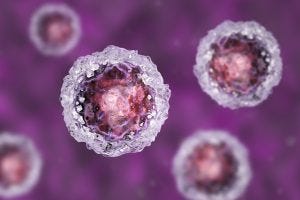Content Spotlight
Podcast: MilliporeSigma says education vital to creating unbreakable chain for sustainability
MilliporeSigma discusses the importance of people, education, and the benefits of embracing discomfort to bolster sustainability efforts.

Vertex has acquired Semma Therapeutics adding a program using pluripotent stem cell-derived islets as a potentially treatment for type 1 diabetes.
While Semma is yet to have brought a therapy into the clinic, the Massachusetts-based firm has created a process it claims can produce stem cell-derived islets (SC-islets) starting from human pluripotent stem cells capable of developing into any cell type in the body.
Its lead candidate has completed preclinical proof-of-concept studies demonstrating evidence of the potential of such technology as a curative therapy to treat people with type 1 diabetes, differentiating itself from more traditional approaches to treating diabetes.

Image: iStock/Dr_Microbe
According to Vertex Pharmaceuticals CEO Jeffrey Leiden, the $950 million (€862 million) cash acquisition is a “substantial opportunity to transform the treatment paradigm for type 1 diabetes, a specialty disease cared for by endocrinologists, both by advancing the development and manufacturing of the cells themselves, as well as through the highly innovative cell/device combination.”
The deal – expected to close by the end of the year – fits in with Vertex’s acquisition and partnership strategy, which has brought the firm access to several ‘toolbox’ technologies. These include the recent collaboration with CRISPR Therapeutics and the acquisition of Exonics Therapeutics bolstering its gene editing portfolio; the use of protein degradation tech through a partnership with Kymera Therapeutics; and a mRNA collaboration with Moderna Therapeutics.
This “toolbox” business development strategy was applauded by Evercore ISI analysts in a note, who added the foray into regenerative medicine through the acquisition of Semma propels Vertex into the relatively small islet cell space.
Other than Semma, there are only two companies leading the charge in this new therapeutic space: Sigilon and Viacyte.
According to Evercore ISI’s note, while Cadaver Islet allo-transplantations have been around for decades and insulin independence and improved glycemic control has been observed with such therapies, they suffer from limitations including: 1) the lack of donor / cadaver islets for transplants and subsequent limited efficiency of islet isolation from donor pancreas, and 2) host immune reaction to the transplant.
“All three companies use different variations of human stem cell differentiation to solve problem #1: getting a reliable source of cells, and attempt to solve problem #2 the immune reaction using different encapsulation technologies (cells encapsulated in devices made of porous membranes vs microsphere encapsulation) to allow for nutrient/oxygen/endocrine communication but prevent immune cell infiltration.”
Viacyte, which has a product in the clinic, uses pancreatic endoderm cell transplants modified through gene-editing technology to address these limitations. Sigilon and Semma meanwhile look to induced pluripotent stem cells (iPSCs).
“Both Sigilon and Semma’s approaches seem promising, but note that Sigilon is already partnered with Eli Lilly,” said Evercore ISI. “This may explain why Vertex bought Semma, in addition to representing a large potential specialty opportunity.”
You May Also Like